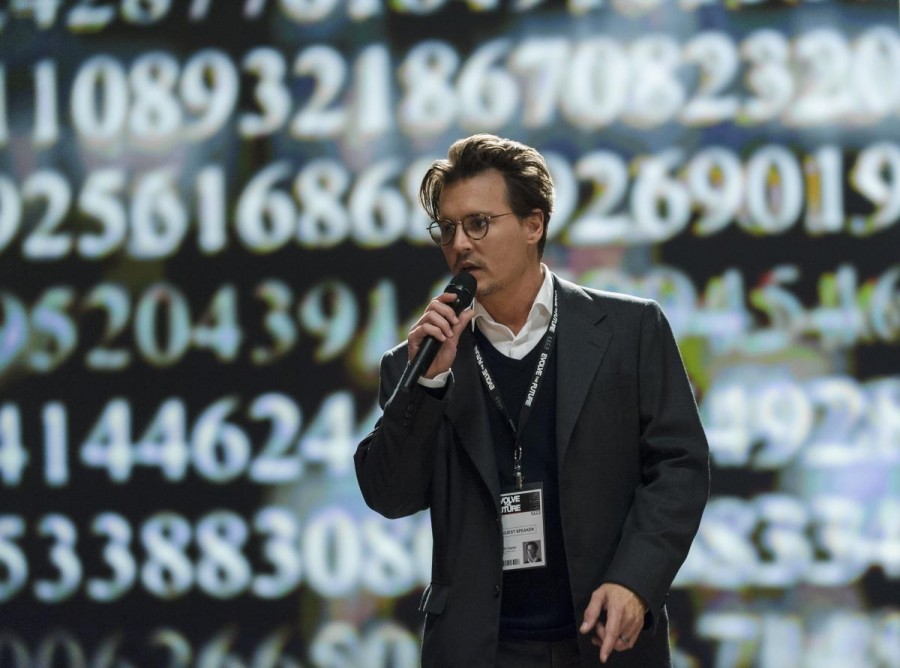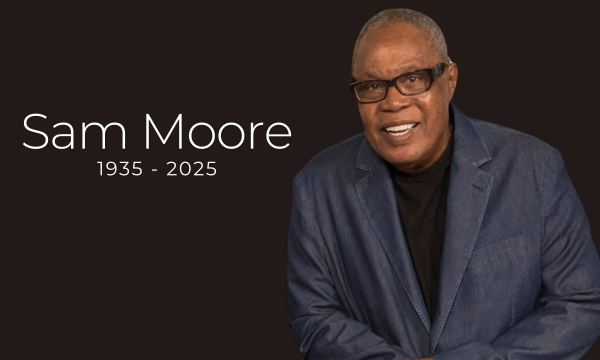 Johnny Depp stars as Will Caster, a computer genius, whose consciousness is transplanted into a highly advanced artificial intelligence system in the new science fiction, cautionary tale, Transcendence. The film marks the directorial debut of Christopher Nolan’s (director The Dark Knight series), longtime director of photography Wally Pfister. While the presence of Nolan’s cinematic style can definitely be seen in the film’s ambition and visual scope, Pfister’s Transcendence lacks the character development and nuance of his mentor’s films.
Johnny Depp stars as Will Caster, a computer genius, whose consciousness is transplanted into a highly advanced artificial intelligence system in the new science fiction, cautionary tale, Transcendence. The film marks the directorial debut of Christopher Nolan’s (director The Dark Knight series), longtime director of photography Wally Pfister. While the presence of Nolan’s cinematic style can definitely be seen in the film’s ambition and visual scope, Pfister’s Transcendence lacks the character development and nuance of his mentor’s films.
After giving a speech in which he invokes the god-like potential of sentient artificial intelligence, Depp’s character, Will, is shot by a member of an anti-technology terrorist group. Will survives the gunshot, but soon learns that the bullet was laced with radioactive material and he only has a few weeks to live. With the help of his loving wife, Evelyn, played by Rebecca Hall (The Prestige, Vicky, Cristina Barcelona) and his partner Max, played by Paul Bettany (A Beautiful Mind), Will uses new technology to implant the entirety of his neural network into a computer system.  A.I. Will immediately wants to take advantage of his newfound intelligence and access, bringing up the question, “is this more Will or computer?” Max, concerned about the implications of the super-intelligent, sentient program, abandons the project, but Evelyn believing A.I. Will to genuinely be the man she loves, sticks by him as he becomes more and more powerful.
A.I. Will immediately wants to take advantage of his newfound intelligence and access, bringing up the question, “is this more Will or computer?” Max, concerned about the implications of the super-intelligent, sentient program, abandons the project, but Evelyn believing A.I. Will to genuinely be the man she loves, sticks by him as he becomes more and more powerful.
The initial threat of A.I. Will is the damage he could cause to the Internet-dependent infrastructure of the world, but rather than playing out that storyline, the film shifts its focus to the growing God complex of this all-powerful computer. Soon A.I. Will is using technology to heal people and re-grow plant-life. At first it seems as if he is creating a Utopia, but things soon take a turn for the creepy. This new direction feels less like the natural course of the original premise and more like a device constructed to furnish the film with a little excitement and action as it approaches its resolve.
Change in scope would probably be less conspicuous if there were a better sense of the characters to begin with. This issue starts with Will Caster himself. Even before he is turned into a computer program, there is very little to humanize Will’s character.  At one point, Evelyn quips about A.I. Will, that “he definitely hasn’t lost his sense of humor,” which made me wonder at one point if we saw that before. He comes off, even before the transformation, as robotic. This is especially problematic when the audience needs to feel like the A.I. Will is actually a real person. Depp is an actor known for filling his characters with quirk and idiosyncrasy, so why does Will come off so lifeless when it’s so crucial to the plot that he seems alive?
At one point, Evelyn quips about A.I. Will, that “he definitely hasn’t lost his sense of humor,” which made me wonder at one point if we saw that before. He comes off, even before the transformation, as robotic. This is especially problematic when the audience needs to feel like the A.I. Will is actually a real person. Depp is an actor known for filling his characters with quirk and idiosyncrasy, so why does Will come off so lifeless when it’s so crucial to the plot that he seems alive?
The film does have its merits. Where it may lack some emotional depth, the film is technically proficient. At the onset, Pfister skillfully sets up multiple plot elements in a tense and suspenseful way. He also, regardless of whether or not they are the right avenues, commits to whatever story choices he makes in an entertaining fashion. And, of course, the look of the film is exceedingly polished.
It’s unfair to compare a person’s first directorial effort to the oeuvre of one of Hollywood’s greatest living directors, but Transcendence definitely has the grand composition and thematic make-up of what could have been a Nolan movie and its promotion is certainly pushing the connection, so the critique seems unavoidable. Despite its flaws, there are certainly parts of Transcendence which indicate that Pfister might develop into a strong storyteller in his own right. Pfister isn’t quite Nolan yet, but there’s room for optimism.
By Adrian Vina
Rated PG-13 for sci-fi action and violence, some bloody images, brief strong language and sensuality














